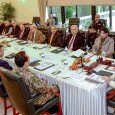By Rasul Bakhsh Rais –
Lotas weaken democracy and the system inherently, but somehow always find ways to circumvent laws to stay in the game
One of the major issues that has destabilised Pakistani politics is changing of political affiliations, loyalties at a critical juncture to bring down an elected government by causing it to lose majority in the assembly or parliament. From early years of Pakistan’s independence to the third democratic era, (1988-1999) we have seen factions and groups deserting one party and joining another to create an artificial majority. This produced two immediate effects on Pakistan that don’t seem to be leaving us.
One is that the political party system became weak with weak political values of commitment, ideology and loyalty to a party. The second effect was that the leaders, knowing that the public representatives were willing to sell, began to buy them, using state resources and patronage. The buying of group and individual loyalties has continued unabated during our current, fourth democratic transition. Parliamentary democracy requires an elected government to maintain a majority, and they know it can be maintained by keeping a large number of the representatives within the fold.
And it must be done at any cost, mostly at public expense. The cost includes overblown, even unsustainable cabinets, jobs, development funds and recognition of influence in the posting and transfers of bureaucrats in position where money can be made. Political patronage doesn’t end there. The most significant aspect of it is buying powerful individuals and groups provided they have the numbers with them in the assemblies, by extending legal cover and protection to them against prosecution. Both civilian and military leaders have used this mechanism to have such groups to have them on their side. Character, integrity, values or any sense of national purpose have no meanings in this political business of selling and buying of political support.
Rightly, the Pakistani commentators have popularised the term horse-trading for changing of political loyalties for material benefits. More native, vernacular term is ‘lota’ for any such individual. This portrays more accurately his or her unstable, unpredictable behaviour like the traditional lota — a baked clay vessel for ablution with a round unsteady bottom. What can be the treason or reasons for lota political culture of Pakistan? The short answer is the culture of power flowing from and to the ruling elite and their kin. What, then, is this culture and what are its sociological roots?
“Even 18th Amend. is not likely to prevent determined individuals and groups within the parliament to change loyalties. They have invented the term — forward bloc. This allows a faction to keep claim on the party label, and not easily lose seats in the parliament”
The roots of this culture are in the agrarian, feudal society of Pakistan. In this society, the yardstick of power measures the prestige, social position and standing. The interesting thing is that all such families have good endowment and accumulation of many elements of social power — caste and tribal leadership, land and money. Why, then, do they need the power of association with the government? It has been a critical factor since colonial times, as the colonial power created the larger of part of our traditional ruling class — the tribal, feudal elites by giving them lands, titles, and access to state resources in return for ensuring stability and order among the local communities, as an adjunct of the Raj administration. Today, being in the government is a political compulsion for this and some other reasons for the ruling families, even those that have come from purely middle class background.
Two social developments are very important to consider here. First, competition and rivalry at constituency and district level has become far more intense and cutthroat than it ever was among the upper layer families using elections as a vehicle for social and political significance. Second, there is yet another facet of rivalry among the upper layer of society — the race for riches, no question how the money is made. At the root of all scandals of the past several decades and changing of loyalties is the money factor. It is no longer an assumption but a fact of political life that money can be made and really
big at that by being in the government. Opposition of the principled kind is left only for fools in this culture of power. Another important reason that nurtures and sustains lota culture is fragmented political party system. It is true that in transitional democracies, parties break, merge, form coalitions and give rise to new parties and even party systems. But in our case, the military regimes from Ayub Khan to Pervez Musharraf deliberately divided and destroyed the major political parties.
 The Muslim League, the party that founded the country and has a political legacy has been the prime target. Not that others like the PPP have been spared. Decades of military rule hasn’t allowed the political parties to develop grass-root support. Party leaders had existential interest in winning and maintaining majorities. They had no time for going to the masses and rooting the parties in the local communities. They took the easiest route of getting the electable, influential — meaning the caste, feudal, tribal leader or the landlord — on board. One of the tragic outcomes of undemocratic interludes has been that the inner core of the parties has gradually thinned out. They depend on the rented and bought up political loyalties of members of the assemblies who have party labels but unreliable loyalties.
The Muslim League, the party that founded the country and has a political legacy has been the prime target. Not that others like the PPP have been spared. Decades of military rule hasn’t allowed the political parties to develop grass-root support. Party leaders had existential interest in winning and maintaining majorities. They had no time for going to the masses and rooting the parties in the local communities. They took the easiest route of getting the electable, influential — meaning the caste, feudal, tribal leader or the landlord — on board. One of the tragic outcomes of undemocratic interludes has been that the inner core of the parties has gradually thinned out. They depend on the rented and bought up political loyalties of members of the assemblies who have party labels but unreliable loyalties.
There are two solutions to the problem of lotaism. There is no substitute for developing the party system by bringing democracy in the internal structures. That is not happening at the moment; rather the parties that we have today, with few exceptions, are organised and function like the clubs of the ruling families. Entry in their ranks is restricted and one can join them, if one can bring some value and that also in sub-ordinate, secondary and auxiliary position.
Democracy, in fact, strengthens political parties as it springs up new leadership and provides these parties with a genuine social support base, and not the aggregation of influence of the powerful families. But then such a democracy is not in the interest of the party bosses. The second solution is a law on floor crossing, meaning a member will have to resign if he or she changes the party. We have this law now, apparently for the purpose of discouraging desertions and revolts.
Hidden under the 18th Amendment, the law, a constitutional amendment in fact, gives the party bosses rather too much power on how the party members would vote. Even this law is not likely to prevent determined individuals and groups within the parliament to change loyalties. They have invented the term —forward bloc. This allows a faction to keep claim on the party label, and not easily lose seats in the parliament.
Lastly, the culture of power that I built my argument on is the case of Pakistan being driven by self-indulgence of ruling elites. All other values are secondary and only convenient tools and relevant to their quest for power. As long as we have weak parties, undemocratic party bosses and weak democracy, lotas — the evergreen political class of Pakistan — will find ways to sell themselves.
The writer is an academic and teaches at LUMS






























































































